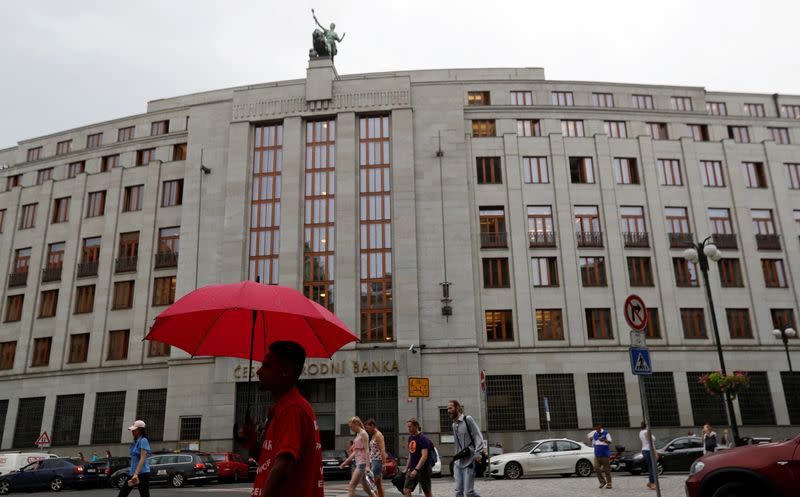New Czech central banker Kubicek: current rates should tame inflation

PRAGUE (Reuters) -The Czech National Bank's current interest rate setting should be enough to bring inflation down this year as long as wages do not accelerate or the crown weaken unexpectedly, new board member Jan Kubicek told a news website.
In his first interview since joining the board last month, Kubicek told newstream.cz on Tuesday that he favoured the bank's approach of keeping rates higher for longer, rather than further tightening policy.
The bank has maintained its base interest rate at 7.00% since the middle of last year, following a sharp year-long hiking cycle that totalled 675 basis points.
But the bank has faced criticism from some economists for not lifting rates higher to counter inflation, which is currently running at 17.5%, around a three-decade high.
The International Monetary Fund, as well as the bank's own macro outlook and a minority on the board, have also said more tightening would help tame price growth faster.
Kubicek, 46, a former central bank adviser who most recently worked at the independent state budget watchdog, is one of two new members who joined the seven-seat board in mid-February.
He said the policy debate was over whether the bank should raise rates further and then cut them while the European Central Bank might still be in tightening mode, or whether to keep the current rates for longer.
"The second approach is closer to me personally," he said, adding he did not share the view of some of his colleagues that monetary policy needs to tighten to rein in inflationary expectations.
** Click here for here for an interactive graphic:
Kubicek estimated inflation would drop to 6-8% by December. He also said some shock that would require raising rates could not be ruled out.
"But as long as wages do not fundamentally accelerate, or the crown weakens to levels that we do not expect, then the current setting of rates should be enough," he said.
Czech central bankers have fought criticism for their approach to inflation. High price growth, seen around central Europe, has hammered people's paychecks and pushed the Czech economy into recession at the end of last year.
Kubicek said the crown, trading at almost 15-year highs in the past month, was a good supplementary tool for policy.
The bank has pledged to prevent sharp swings in the crown exchange rate through currency market interventions since last May, but it has not had to sell foreign currency in recent months, according to its data.
Kubicek said an overheated labour market was a big question which could factor into wage demands. Another question mark was the government's fiscal policy.
"If debt were to grow at the current pace, we would be forced to keep higher rates for longer," he said.
(Reporting by Jason Hovet and Robert Muller; Editing by Andrew Heavens, Jamie Freed and Christina Fincher)

 Yahoo Finance
Yahoo Finance 